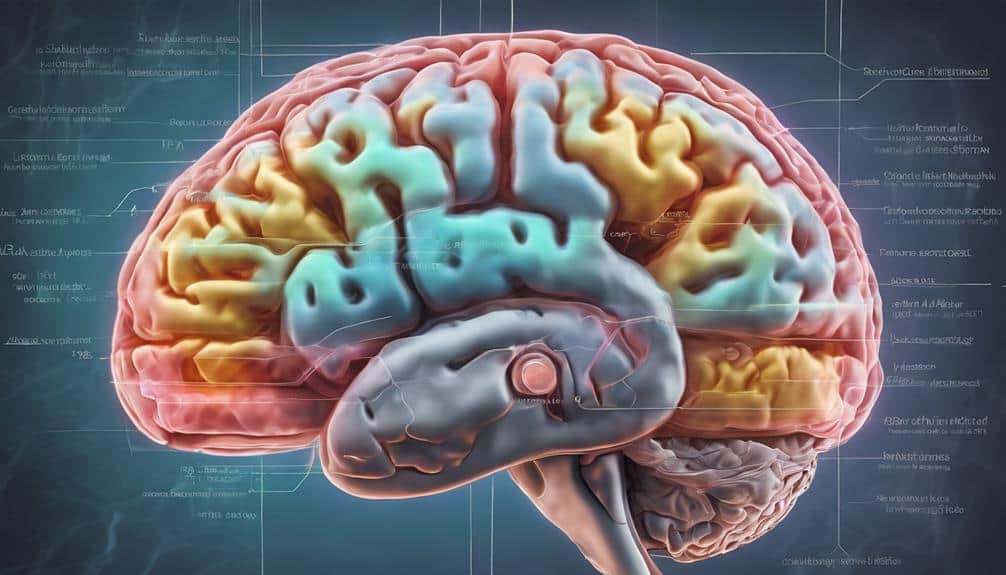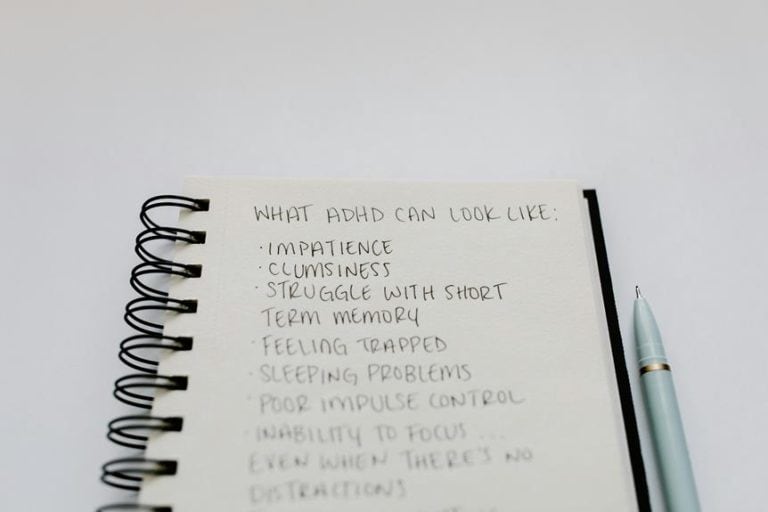Ketamine for Adhd
As we navigate the intricate landscape of ADHD treatment, the potential role of ketamine emerges like a beacon in the fog.
The idea of utilizing this powerful drug for ADHD may seem like a promising path, but the road ahead is filled with uncertainties and complexities.
Before we rush to conclusions, it's crucial to weigh the evidence, consider the implications, and ponder the implications of such a controversial approach.
Stay tuned as we uncover the layers of this intriguing topic and explore the possibilities that lie within.
Key Takeaways
- Ketamine shows promise in improving focus and attention in ADHD.
- Its NMDA receptor modulation may benefit cognitive functions.
- Ketamine's rapid relief and lasting effects offer potential for ADHD management.
- Consideration of risks and benefits with professionals is crucial for Ketamine use in ADHD.
Understanding ADHD and Its Challenges

Understanding the complexities of ADHD and its impact on daily life requires a thorough examination of its core symptoms and associated challenges.
ADHD, a common mental health condition, manifests through symptoms such as inattention, hyperactivity, and impulsivity. These symptoms can profoundly affect an individual's ability to focus, organize tasks, and manage time efficiently.
In addition to these primary symptoms, individuals with ADHD may experience side effects such as low self-esteem, anxiety, and difficulties in social interactions. These challenges not only influence academic and work performance but also impact relationships and overall quality of life.
Managing ADHD effectively involves a combination of approaches including medication, therapy, behavioral interventions, and professional support.
Mechanism of Action of Ketamine

Exploring the impact of Ketamine on ADHD involves examining its mechanism of action in modulating brain receptors related to memory and cognitive functions. Ketamine blocks NMDA receptors, which are important for memory and focus regulation. This modulation of NMDA receptors affects the levels of glutamate, an essential neurotransmitter involved in cognitive functions. Additionally, as an NMDA receptor antagonist, Ketamine influences emotional perception and pain processing.
- Ketamine's blocking of NMDA receptors disrupts the normal transmission of glutamate, impacting memory and cognitive functions.
- This disruption can lead to alterations in emotional perception due to the modulation of NMDA receptors by Ketamine.
- Ketamine's influence on NMDA receptors can also affect pain processing, potentially contributing to its analgesic properties.
Understanding how Ketamine interacts with NMDA receptors provides insight into its potential benefits for managing ADHD symptoms. Further research is needed to elucidate the full extent of Ketamine's effects on these receptors and its implications for ADHD treatment.
Research Evidence on Ketamine for ADHD

Limited research on the potential benefits of using ketamine for managing severe ADHD symptoms indicates promising outcomes in improving focus and attention through its regulation of glutamate levels in the brain. Research suggests that ketamine, known for its rapid-acting antidepressant effects, may also hold promise in the domain of ADHD medication. Investigations into ketamine's mechanism of action on NMDA receptors have theorized its potential therapeutic effect on ADHD symptoms, particularly in cases where traditional medications have shown limited efficacy.
Current studies exploring the use of ketamine for ADHD treatment are laying the groundwork for understanding its safety and efficacy in this context. Clinical trials are underway to assess the viability of ketamine infusions as a potential intervention for individuals with treatment-resistant ADHD. While anecdotal reports and early research provide initial insights, further controlled studies are necessary to establish ketamine's role as a mainstream ADHD treatment. The evolving landscape of ADHD medication may benefit from the innovative potential that ketamine offers in addressing this complex neurodevelopmental disorder.
Potential Benefits of Ketamine Treatment

Building on the emerging research on ketamine's potential in managing ADHD symptoms, the benefits of ketamine treatment extend to offering rapid relief and modulation of cognitive functions in individuals with ADHD. When considering the potential benefits of using ketamine in a clinical setting, several key advantages become apparent:
- Rapid Relief: Ketamine treatment has shown promise in providing quick alleviation of severe ADHD symptoms, offering a new approach for individuals who haven't responded well to traditional treatments.
- Modulation of Cognitive Functions: Studies suggest that ketamine can help regulate glutamate levels in the brain, impacting focus and attention. Additionally, its ability to block NMDA receptors may enhance memory and cognitive function in individuals with ADHD.
- Longer Lasting Effects: Ketamine infusions in a controlled setting, such as a Ketamine Clinic, could potentially provide long-lasting benefits for managing ADHD symptoms, offering a sustained improvement in cognitive functions over time.
Considerations and Future Directions

In the domain of ADHD treatment research, the assessment of Ketamine's potential efficacy remains a focal point for future investigations. While preliminary studies suggest a possible benefit of Ketamine infusions for ADHD, the scientific evidence is currently limited.
It's essential to contemplate potential side effects such as nausea, dizziness, confusion, and disorientation, which may occur during and after treatment. Additionally, the long-term safety and effectiveness of using Ketamine for managing ADHD symptoms require further exploration to establish conclusive results. Clinicians must exercise caution when contemplating Ketamine as an ADHD treatment due to its potential for misuse, abuse, and addiction.
Individuals considering Ketamine infusions for ADHD should engage in thorough discussions with healthcare professionals to evaluate the risks and benefits associated with this off-label use. Furthermore, monitoring parameters such as heart rate and blood pressure, as well as being vigilant for side effects like blurred vision, are important considerations in the ongoing research and potential future clinical applications of Ketamine for ADHD.
Frequently Asked Questions
Can Ketamine Be Used as a Long-Term Treatment for ADHD, or Is It More Suitable for Short-Term Relief of Symptoms?
Long term effectiveness is critical when considering treatment options for ADHD. While short term relief can be helpful, sustainable solutions are imperative for managing symptoms effectively. It's crucial to explore therapies that offer lasting benefits.
Are There Any Known Side Effects or Risks Associated With Using Ketamine for ADHD Treatment?
Potential risks should always be weighed against benefits in any treatment. Long term effects of medications must be considered. It's essential to explore treatment alternatives to make sure the best care.
How Does Ketamine Compare to Traditional ADHD Medications in Terms of Efficacy and Safety?
Comparing ketamine to traditional ADHD meds for effectiveness and safety reveals nuanced differences. Research on long-term efficacy and risks, along with subtype-specific benefits, is vital. Understanding these factors can optimize treatment outcomes.
Are There Any Specific Subtypes of ADHD That May Benefit More From Ketamine Treatment Than Others?
Delving into different subtypes of ADHD sheds light on the nuances of treatment effectiveness. Individual responses vary, impacting treatment duration. Understanding neurobiological mechanisms could pave the way for tailored therapies in future directions.
Is There Ongoing Research Into Developing New Forms of Ketamine or Alternative Treatments for ADHD That May Be More Effective or Have Fewer Side Effects?
Research is constantly exploring new treatments for ADHD. Clinical trials investigate novel therapies and alternative approaches to enhance effectiveness and minimize side effects. These efforts aim to advance the field and improve outcomes for individuals with ADHD.
Conclusion
To summarize, while ketamine shows promise in addressing ADHD symptoms, it isn't a magical cure-all. It's essential to approach its use with caution, considering potential side effects and the need for ongoing research.
So, next time you're tempted to think ketamine is the answer to all your ADHD woes, remember to stay grounded and keep an eye on the bigger picture.







